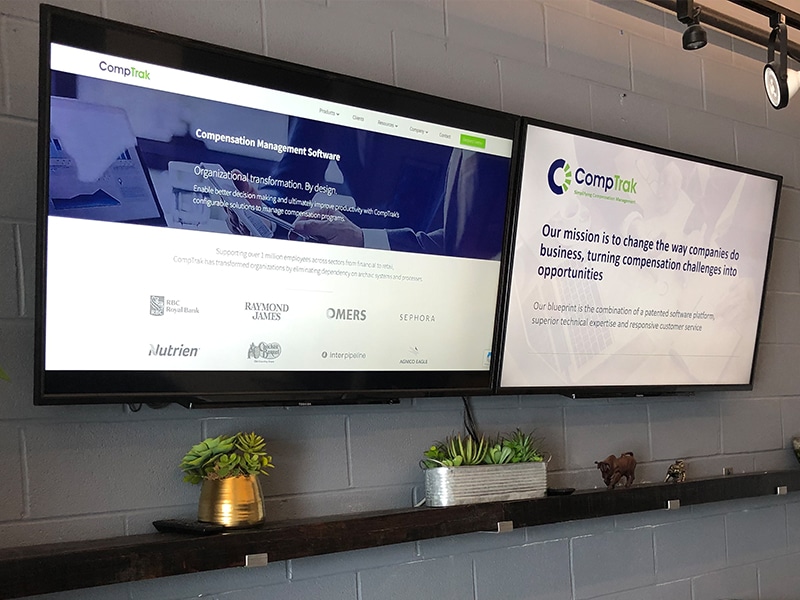Whether you are just finishing your year-end compensation cycle or starting to plan for the next, it’s never too early or late to plan for your upcoming cycle to ensure its success.
Regardless of company size, proper planning will prepare you to identify risks or opportunities early on, align your compensation activities with your business, and help you successfully introduce change.
Important areas to consider for Compensation cycle
Below are important areas to consider for your plan:
1. Proper Stakeholder Management.
Spend time identifying who your stakeholders should be. You can create a stakeholder chart to refer to it throughout the cycle. I can’t stress enough how important this is. Many projects or initiatives have been significantly derailed in the eleventh hour due to a lack of proper stakeholdering.
A stakeholder chart should illustrate the groups that need to be involved in different activities throughout the cycle, and what their role is. It should indicate when they are responsible or accountable for an activity, or when they need to be informed.
Finally, you should note each member’s influence/engagement level. What’s their level of influence in the company? Are they fully engaged in your initiative? Knowing their influence/engagement level will help you determine how to work with them. Your high influence/high engagement stakeholders are your champions and advocates at the top. Many place a heavy focus on this group, looking for them to do the heavy lifting to bring other stakeholders along; however, it’s worth spending time to focus on the others.
Your low influence/high engagement stakeholders are your ambassadors at various levels of the company. Keep them equally engaged as they may end up being your high influence stakeholders down the road. Stakeholders with low engagement can be won over by appealing to mutual areas of interest. They may emerge as one of your stronger advocates.
2. Managing Change
We’ve all experienced a significant change in the workplace over the past 12 – 18 months, primarily due to the pandemic. Companies were challenged with realigning their businesses to adapt, and likely adjusting performance targets and annual bonuses to reflect reality. Knowing the type of change you are dealing with can help determine how to design your plan.
Remedial changes, as outlined above, require a strong communication plan along with ensuring the appropriate stakeholder representing the group targeted for this change is involved from the start.
Transformational changes (i.e. implementing technology) require dedicated resources focused on managing how that change affects all aspects of the organization. Strong sponsorship from Senior/Executive Leaders, and ensuring all groups work cohesively is key.
Thinking of enhancing your current compensation technology, or implementing one altogether for the upcoming cycle? There are many benefits to implementing compensation technology to successfully manage your compensation program. Centralizing your compensation in one system vs. stored on different spreadsheets offers tremendous benefits with managing your compensation program.
Factors to consider before implementing compensation technology
Consider the following if going down this path:
1. Are you driving transformation or automating a process?
These two are different and will drive the scope of your project which determines how much time and resources are needed. Driving transformation involves a significant change in the process to drive a change in people’s behaviour. Automating a process streamlines an activity and is intended to move the process online. While there will be slight process changes, the primary focus is not to drive significant change.
2. Is your data ready?
What state is your compensation data in today? Are you working with incorrect or incomplete data? Are you planning to do an overhaul of your compensation data? Many move forward with implementing technology without considering if their data is ready for it.
Some companies opt to undergo a data clean-up initiative while migrating to a technology solution at the same time. Both may be successful if you have the proper time and resources devoted to each. It’s more often the case where one suffers because of insufficient resources, much less time, to devote to both initiatives. Also, data clean-up usually impacts a broader group where their priorities, and timelines are not aligned to yours. There are times where more than one process is affected when undergoing a data clean-up (i.e. job code data clean-up impacts job evaluations, which may impact salary and so on…)
3. Do you have fully defined and well-adopted processes?
Implementing technology to automate mature and consistent processes works well. The challenge lies in automating a process that is not well defined and makes room for a lot of exceptions. Technology drives consistency in your processes. While configuring some exceptions into your process is fine — where it makes sense, be mindful not to migrate all your exceptions online. You will likely end up with a highly customized tool with limited to no agility to scale or change with your business.
Where to start if you want to bring your compensation process online? One of the areas we have seen an accelerated interest in is Total Rewards Statements. This trend is one of a few we are seeing in Compensation Management.
There’s a huge upside with providing online Total Rewards Statements to your employees. Companies have leveraged Total Rewards Statements as a broader communication tool and allow companies to be creative when delivering their message online with links to benefits or perks offered or embedding video clips to deliver a Leader’s message. Companies also recognize that bringing you Total Rewards Statements online provides the broadest, as well as immediate return on investment with their Employees.
If you are in the start, midst or end of your compensation cycle, please don’t hesitate to get in touch with us.














